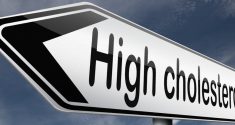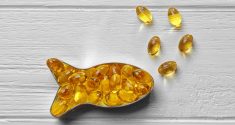High Cholesterol and Erectile Dysfunction: What's the Connection?
What Causes Erectile Dysfunction?
 Research over the past several decades has helped us to understand the erectile dysfunction more thoroughly and we now know that it can be caused by either psychological or physical problems. Even though this condition, commonly called E.D., is treatable, many men are reluctant to seek treatment out of embarrassment. Understanding more about the condition can help reduce the stigma that surrounds it.
Research over the past several decades has helped us to understand the erectile dysfunction more thoroughly and we now know that it can be caused by either psychological or physical problems. Even though this condition, commonly called E.D., is treatable, many men are reluctant to seek treatment out of embarrassment. Understanding more about the condition can help reduce the stigma that surrounds it.
There are a few specific risk factors for erectile dysfunction that have been identified through research. Learning about them can help you limit your risk of developing the condition and may help you control, or reduce, E.D. episodes. For example, we know that psychological problems can cause the condition to develop temporarily, so seeking treatment for mental afflictions can help. These psychological causes of E.D. include:
- depression
- strong feelings of anxiety
- guilt
- fear of intimate relations
There's a much longer list of physiological causes and risk factors for developing E.D., so maintaining good overall health is essential to lowering your risks. Some of the known physiological risk factors include:
- cardiovascular disease
- hypertension
- high LDL cholesterol
- diabetes
- obesity
- Parkinson's disease
- multiple sclerosis
- substance abuse
Additionally, conditions that directly affect the male reproductive system will also raise the risk of developing erectile dysfunction. This can include a low testosterone count, prostate disease or Peyronie disease. Erectile dysfunction can also commonly result from injuries to the spine or pelvic region.
As previously mentioned, erectile dysfunction is marked by an inability to obtain or maintain an erection. Even if an erection is achieved, the individual may not be able to maintain it long enough to complete intercourse, or to ejaculate during masturbation. These incidences are only considered symptoms of E.D. when they occur frequently over a long period of time. Additionally, the individual may lose interest in sex and may feel too embarrassed or ashamed to engage in any type of sexual activity.
How Are High Cholesterol and Erectile Dysfunction Connected?
Further research has confirmed that high cholesterol is a contributing factor in causing E.D. to develop in some men. Previously, the link between high cholesterol and erectile dysfunction was assumed, because high cholesterol raises the risks of developing other conditions that are known to lead to erectile dysfunction. For instance, people with high cholesterol often develop diabetes or heart disease, which, in turn, can cause E.D. to develop as one symptom. The latest research suggests, however, that there may be a more direct link.
HDL cholesterol is good for the body, because it aids in the production of tissue and sex hormones. However, LDL cholesterol is a harmful substance that builds up in the body's arteries and creates blockages that can inhibit the flow of blood. Since the penis becomes erect by becoming engorged with blood, an inhibited blood flow can interrupt, or prevent, the process of developing an erection. The condition in which cholesterol build-up in the arteries inhibits blood flow is a serious condition known as atherosclerosis and E.D. is only one symptom of the condition.
For men with high cholesterol, getting treatment may help resolve their E.D. experiences naturally. The most common treatment for high cholesterol are medications known as statins. These drugs inhibit the production of the protein that the liver uses to produce cholesterol. As the protein, known as HMG-CoA reductase, is blocked, the body responds by removing more cholesterol from the blood supply. When used in conjunction with dietary and lifestyle changes, statins can be very effective in lowering cholesterol levels. As a result, other conditions in the body may also be alleviated, including instances of erectile dysfunction.
Natural Ways to Maintain Better Heart Health
February is American Heart Month, so this is the perfect time to begin taking steps to improve your cardiovascular health. In doing so, you can also improve your cholesterol levels and reduce your risk of developing E.D. Here are a few lifestyle tips to help you get started.
Adopt a Healthier Diet
 Changing the foods you eat is essential to controlling your cholesterol levels. You can start by eating heart healthy foods, such as foods rich in omega-3 fatty acids (salmon, mackerel and flaxseeds)and soluble fiber (kidney beans, oatmeal and apples). You should also eliminate saturated fats (full-fat dairy foods and red meat) and trans fats (store-bought pastries and cookies, or anything containing vegetable oil) from your diet.
Changing the foods you eat is essential to controlling your cholesterol levels. You can start by eating heart healthy foods, such as foods rich in omega-3 fatty acids (salmon, mackerel and flaxseeds)and soluble fiber (kidney beans, oatmeal and apples). You should also eliminate saturated fats (full-fat dairy foods and red meat) and trans fats (store-bought pastries and cookies, or anything containing vegetable oil) from your diet.
Take a Dietary Supplement
There are high-quality dietary supplements available, such as Cardiochron, which are engineered to promote optimal heart health. Cardiochron provides the folic acid and B vitamins that are essential to overall cardiovascular health, along with other nutrients to help you maintain a healthy heart and normal cholesterol levels.
Get More Exercise
Your heart is a muscle and, like any other muscle, regular exercise is essential for keeping it strong and healthy. As a minimum, you should be getting 30 minutes of medium to high-intensity exercise every day, but that doesn't mean you can't mix things up. Go swimming, take a bike ride and hit the gym on alternating days. The variety will help you exercise different muscle groups, while giving your heart the strenuous workout it needs.




